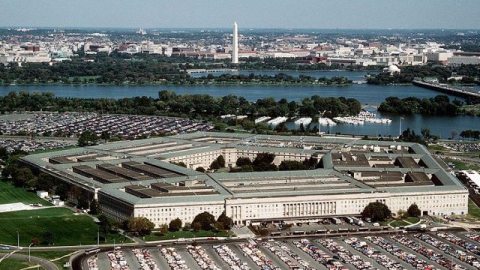Big Government Is Bad for Democracy

Notre Dame philosopher Gary Gutting examines the extent to which the American system of government is democratic. Drawing on Plato’s five kinds of government–aristocracy, timarchy, oligarchy, democracy, and tyranny (we really can’t do better than this?)–Gutting concludes America is is a mix of all them, which he dubs “multarchy.” He then goes on to make what seem to me some straightforward mistakes:
Much of our current debate over this challenge focuses on the question of whether we have “too much government,” where “government” means the federal bureaucracy. Our “Platonic” analysis suggests that this is at best a gross oversimplificaton. The question, rather, is precisely how should we calibrate the relative strengths of all five elements of our multocracy. Current calls for “less government” actually mean less power for elected leaders and for the bureaucracies that serve them and more power for the “oligarchy” of millionaires and corporations. [emphasis added.]
Gutting’s makes several erroneous assumptions. He assumes the bureaucracy is really under the control of elected leaders, but it’s not. The federal bureaucracy is largely a creature of the executive branch. The president is elected, but the executive’s political appointees are not, though some of them are subject to congressional approval. Anyway, most of the personnel of the state is permanent, and varies only slightly as partisan governments come in and out of power. The actual exercise of power in the various bureaucracies is subject to democratic oversight in only the most tenuous sense. Indeed, when bureaucracies become too large, it becomes impossible for elected representatives to supervise their activities on the behalf of the general welfare.
“More government” can mean different, quite incompatible things. For example, it can mean “more state” or “greater democratic control.” If one really means “greater democratic control,” an increase in the size and power of the bureaucracy is generally a move in the wrong direction. More state can mean less government in this sense. And this leads us directly to Gutting’s most important error: the assumption that elected leaders and the bureaucracy generally work against rather than for the interests of “millionaires and corporations.” There’s little reason to believe this. Big government and corporatism go together like Hall and Oates.
So, bureaucracies in fact are subject to very little effective democratic oversight. However, corporate and other special interests are profoundly affected by regulatory and other rulings issued by bureaucrats, which creates a strong incentive to either “capture” or otherwise influence these decisions. Because elected officials need to look after the various interests that constitute their base of support in order to win reelection, to the extent that they do supervise the conduct of the bureaucracies, they often do so in a way that helps their allied interests capture and influence the regulatory process.
It is not at all clear that “more government,” understood as “more state,” would advance the goal of putting the government of the state more firmly in control of the people. “More government” often means less democratic supervision of state power and an increase in the use of state power in the interests of “millionaire and corporations,” and other organized interests at odds with the general welfare. Not that “less government” always or usually means “less power for corporations to co-opt” or “a state small enough to be compatible with democratic governance.” In the mouths of Republicans, “less government” often means little more than removing the “big government” party’s cronies and replacing them with the “small government” party’s cronies without actually doing a damn thing to change the size or scope of government. Maybe that’s what Gutting had in mind.
I don’t know what to call the status quo American system. “Multarchy” is okay, but that’s just an etymologically barbarous way of saying “I don’t know.” Whatever we call it, if we want our system to become more democratic than it now is, we’ve got to take seriously the possibility that the American state is way too big for democratic control.
As it happens, I don’t think Democrats care about democracy any more than Republicans care about liberty. Both parties have a philosophically jumbled list of things they want the state to do, and both lists imply a pretty big state under democratic control only to the extent that that’s necessary to keep the state working off their list.





